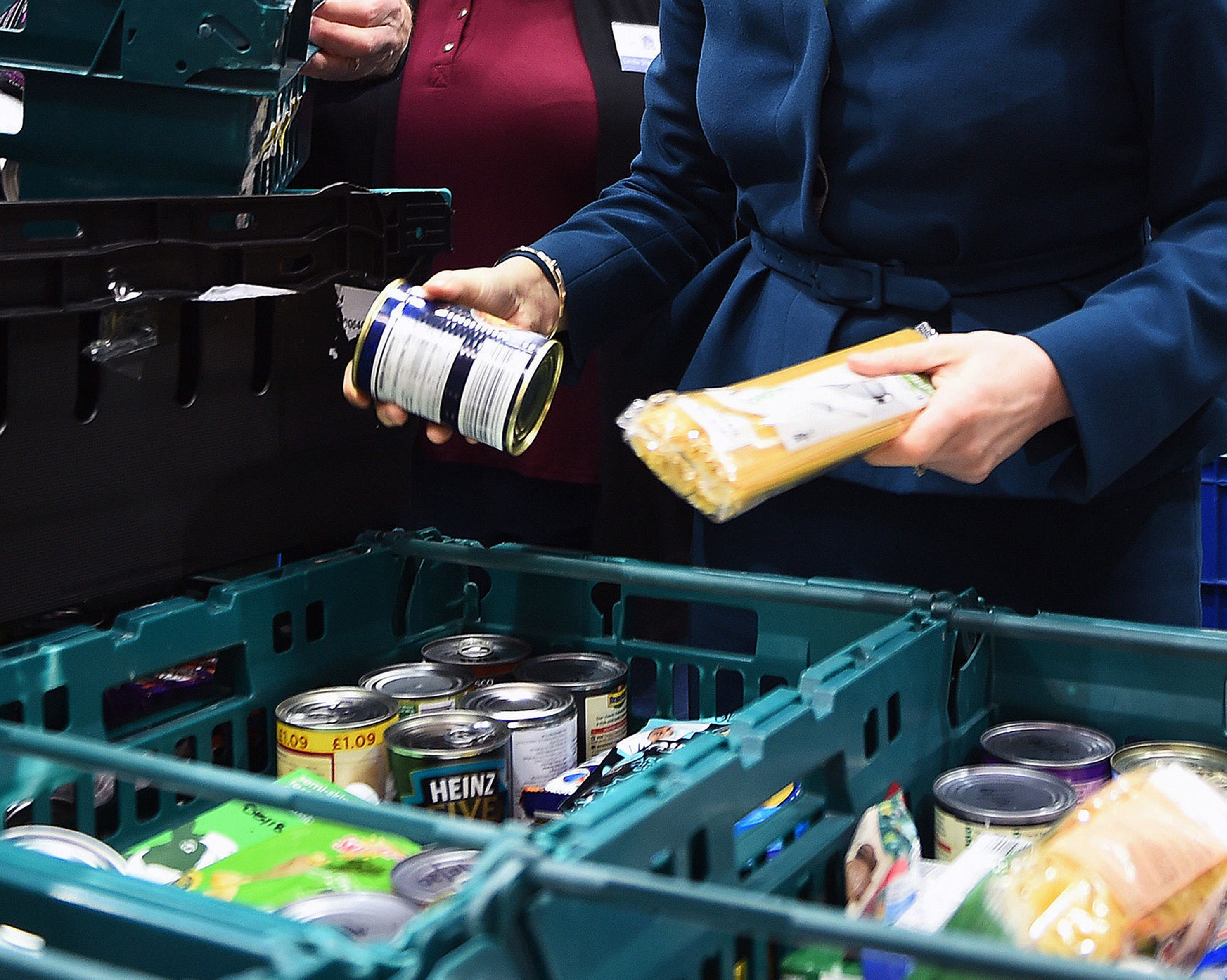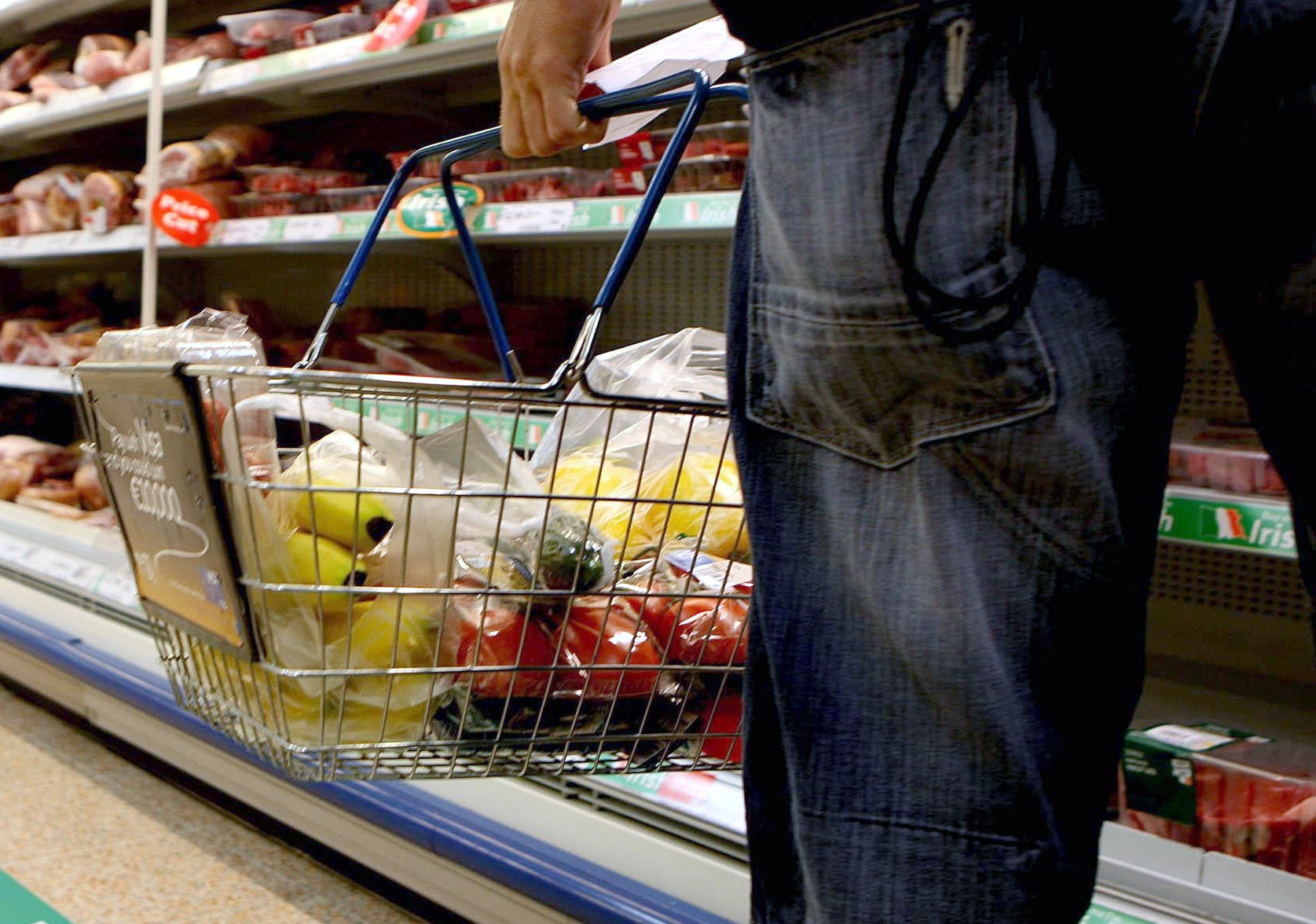Food bank demand surges 46% ahead of ‘worst winter yet as tsunami of need’ outstrips donations
At least half a million children are in need of emergency food parcels, the Trussell Trust has warned
Food banks are facing their hardest winter yet as soaring demand fuelled by the rising cost of living outstrips donations.
Leading charity The Trussell Trust, which supports a network of 1,300 food bank centres, today launches an emergency appeal, warning that “the soaring cost of living is driving a tsunami of need to food banks”.
The demand has been particularly acute over the past few months, with the charity distributing 46 per cent more emergency food parcels to banks in August and September compared to the same months in 2021.
This is the first time the Trussell Trust has recorded a widening gap between donations and food being distributed.
Some 1.3 million emergency food packages, which are designed to feed a family with three days worth of meals, will be needed in the next six months, the charity said. This includes half a million children.
Food banks are struggling to meet the increased need and are having to purchase three times as much food as they did last year, they warned. This financial year, food banks have brought approximately 1,400 tonnes of food – equivalent to 111 double decker buses.

Banks are also having to dig deep from their own funds and have spent almost £1,400 a month on average topping up food donations. This is a significant increase from last year, when food banks were spending just over £750 a month on average.
“Faced with the perfect storm of rising energy prices, inflation and a potential recession that is pushing people deeper into poverty, the soaring cost of living is driving a tsunami of need to food banks,” CEO of the Trussell Trust, Emma Revie, said.
Referring to the charity’s emergency appeal for donations, she said: “We never wanted to run an appeal like this, we would rather there was no need for food banks at all. But right now they are on the frontline of this cost of living emergency, we have no other option.”
Any money raised from the emergency appeal will go towards grants for food banks, offering financial advice at food banks, and additional support to keep the banks operating as they too face increasing energy bills and running costs.
Jamie Ginns, from Greenwich foodbank, said that this year has been their busiest yet. They intend to use any extra grant money to buy blankets to add to their food parcels.
The rising cost of living has been significantly impacting families and millions of households are skipping meals or finding it hard to put healthy meals on the table.
New research from the consumer group Which? shows that people are changing how they shop and eat because of soaring food costs.

Food inflation is now at 14.6 per cent, according to new data from the Office for National Statistics. The high prices are being driven by the rising cost of bread, cereals, meat products, milk, cheese and eggs.
Which? surveyed 2,791 adults online in early August and found that, among those that said they are struggling the most financially, 50 per cent said that their household was skipping meals.
Nearly half – 46 per cent – of consumers said that they were finding it harder to eat healthily compared to before the cost of living crisis.
Some 78 per cent said that they were finding day-to-day costs very hard to cope with.
One 57-year-old London resident, Roberta, said that she was cutting back on food because she didn’t want to cut back on heating.
“I have osteoarthritis and I need to be warm,” she said. “Now I only buy strictly what I need. I have also reduced the quantity of food I eat. At lunch I go for a cup of tea – if I feel hungry, a cup of warm milk with a slice of toast.”
Based on the responses to their survey, Which? estimates that 6.3 million adults are in households that are skipping meals as a result of the rising cost of living.
They estimate that 24.3 million adults are also finding it harder to eat healthily as a result of soaring prices.
Half of respondents said that they were switching to cheaper products to save money on food.
And 99 per cent of people said that they were looking to make savings on the amount of money that they spent on food.
This has benefited some supermarkets, such as Asda, which has seen sales grow by 6.9 per cent in the 12 weeks leading up to 8 October as shoppers look for cheap deals.
Own brand products, such as Asda’s yellow label essentials, have also been doing particularly well.
“The devastating impact of the cost of living crisis is, worryingly, leading to millions of people skipping meals or struggling to put healthy meals on the table,” head of food policy at Which? Sue Davies, said.



Join our commenting forum
Join thought-provoking conversations, follow other Independent readers and see their replies
Comments